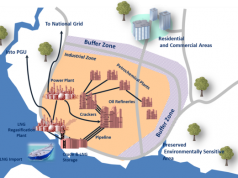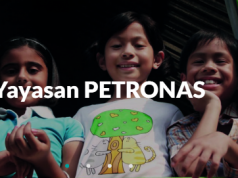Kuala Lumpur, Jan 13- Petroliam Nasional Bhd (Petronas)is undertaking major steps to rejuvenate the oil and gas industry.
The move comes in the face of Malaysian oilfields now entering the mature phase, marked by declining oil and gas extraction, after more than 30 years of extensive exploration and production.
As the custodian of the country’s hydrocarbon resources, Petronas has over the last few years, initiated risk sharing contracts (RSC) for marginal oilfields.
This is to develop resources from smaller oilfields and at the same time explore enhanced oil recovery (EOR) technology to improve production from others that are maturing.
Petronas Executive Vice-President (Exploration and Production Business) Datuk Wee Yiaw Hin said it is estimated that 50 per cent of Malaysia’s producing oil fields have EOR potential.
“Of these, currently more than 10 EOR projects are in the pipeline at various maturation stages. An estimated total investment of US$14 billion (approximately RM46 billion) is required to execute these EOR projects,” he told Bernama.
He said a EOR project required high investments and is technology-intensive with many risks,alongside skilled players being needed to unlock the hydrocarbon potential.
“We are optimistic about the EOR potential, which will be implemented in phases over the medium and long term, with many programmes to be rolled out over the next 10 years,” he added.
Wee said as Malaysia’s oil basins mature, the country is expected to face considerable challenges in sustaining production, and Petronas has as such laid out clear strategies to arrest the decline.
“We have embarked on programmes that involve extending the lifecycle of existing resources by optimising exploration, development and production activities, which are aligned to the Malaysian Economic Transformation Programme.
“These are long term programmes that require significant efforts, not only from Petronas, but also the production sharing and risk sharing contractors, a multitude of service industries and the government.
“Successful execution of these programmes also requires a high amount of capital investment. But these programmes are bearing fruit,” he added.
He said Petronas had allocated around RM1.1 billion until 2018, for it’s E&P Technology Centre arm to develop innovative and applicable technology to rejuvenate mature oil fields, while increasing production at maturing oilfields.
“These areas pose large and complex challenges on the technical and commercial fronts and innovations are required to lower overall costs, improve the performance of applied technologies, as well as include the development of new technology,” he added.
EOR technology will be first implemented at the Tapis oilfield, offshore Terengganu, and is scheduled to start operations in the first half of this year.
The RM10 billion project is projected to boost declining production to between 25,000 to 35,000 barrels per day in 2016 and 2017 from about 3,000 to 4,000 barrels per day currently.
Meanwhile, on marginal oilfield development, Wee said Petronas estimated that Malaysia had some 106 marginal fields, with approximately 580 million barrels of oil.
Of those fields, he said the company had identified between 25 and 27 which it plans to award to RSC contractors for development.
Introduced in 2011, the RSC, as an alternative to the production sharing contract (PSC), is aimed at striking a balance between risk sharing and fair returns for the development of and from fields that have already been discovered.
Under the mechanism, he said specialised and niche players are awarded the contracts and they in turn, would select qualified local partners to develop the RSC areas.
“In this context, the RSC is expected to benefit the local oil and gas industry players through the partnership with the niche players, exposing them to capabilities and technologies that can successfully help unlock their own potential,” Wee said.
To date, Petronas has awarded four RSCs and successes have been achieved from some of the contract areas, namely the Berantai Field which first achieved gas production in October 2012, while oil gushed forth from the Balai Cluster in November last year.
– Bernama











